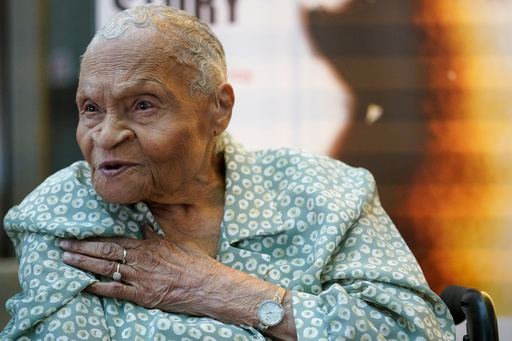
The Oklahoma Supreme Court has declined the plea to reconsider its decision to dismiss a lawsuit brought by the last two surviving victims of the 1921 Tulsa Race Massacre. Viola Fletcher, aged 110, and Lessie Benningfield Randle, aged 109, sought a rehearing after a district court judge in Tulsa initially threw out the case. The justices, with the exception of Justice James Edmondson who would have reheard the case, turned down the request without providing any commentary. Justice Richard Darby did not participate in the vote.
Fletcher and Randle are survivors of the tragic event, which stands as one of the most horrendous acts of violence against Black individuals in American history. The massacre resulted in the deaths of around 300 Black people, the destruction of over 1,200 homes, businesses, schools, and churches, and the internment of thousands in camps overseen by the National Guard. A white mob, some deputized by authorities, ravaged the Greenwood District, famously known as Black Wall Street.
The attorney representing Fletcher and Benningfield, Damario Solomon-Simmons, was not available for immediate comment. Following the filing of the motion for rehearing in July, Solomon-Simmons urged the U.S. Department of Justice to launch an inquiry into the massacre under the Emmett Till Unsolved Civil Rights Crime Act. Solomon-Simmons emphasized President Biden’s promise to his clients to ensure justice and called for the fulfillment of that commitment.
The lawsuit, based on Oklahoma’s public nuisance law, aimed to compel the city of Tulsa and others to provide compensation for the damages incurred. Lawyers argued that Tulsa had exploited the historical significance of Black Wall Street for its own financial gain. They suggested that any proceeds the city makes from promoting Greenwood or Black Wall Street, such as revenue from the Greenwood Rising History Center, should be allocated to a compensation fund for victims and their descendants.
